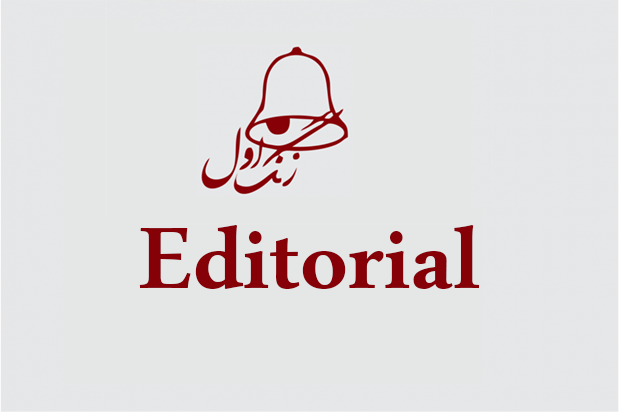Two days ago, two members of the Senate who had gone to inspect an Afghan port were caught taking bribes from port officials. Yesterday, the media reported on misuse of public office by a number of the Minister of Health’s relatives. This year, 8 Subh published reports attesting to the brutal and careless looting of the treasury. From embezzlement from the coronavirus budget in a number of Afghan provinces to reports of embezzlement of food, to parliamentary appointments to Afghanistan’s customs authority, or the billion-dollar loans given to the Ghazanfar Group by the Afghan government – all these cases suggest that we are going through the peak of collective moral decadence. A number of government officials not only receive high salaries, but also house rent and dining expenses. At the same time, the people of Afghanistan are living in poverty and misery, and this nation depends on help from other countries. Is it necessary for high-ranking government officials in a poor country to live a luxurious and royal life for themselves from aid that should be used to solve the growing problems of the people?
There is not a day that a minister, a lawyer, a policeman, or other public servant does not make the headlines for bribery, embezzlement or misuse of office. Perhaps in no period of contemporary history has Afghan society witnessed such a moral collapse. Corruption has penetrated to the marrow of this society. In past years, a number of people who had returned to Kabul from the West had called a section of Afghan society corrupt for various reasons, and it was not long before this group came to power. The installation of these technocrats on top of the pyramid of power was a landmark event, with the hope that as they had studied and lived in developed countries, they would be best equipped to pave the way for a better future for Afghanistan’s troubled society. However, this group coming from the West lost no time in getting busy with corruption and looting the people’s money. To be appointed to the highest levels of government in a complex and impoverished country like Afghanistan was an unexpected surprise for these newcomers, coming from various age groups. Regardless, they easily inherited part of the corrupt system, and set about hoarding wealth through illegal means. Some later fled to the countries they came from, escaping any prosecution.
Afghanistan, as a traditional and patriarchal country, has always viewed young people with suspicion. Young people in this country, despite their merits, have always been used as the tools of political elites. The government of national unity, with its slogans of youth, for the first time appointed a number of young people to the highest government positions. This generational change in government leadership and bureaucracy among the youth of Afghanistan raised great hopes. The general perception was that the national unity government, with all its flaws, had one advantage, which was the generational change in the leadership of the Afghan bureaucracy.
But this opportunity, which should have been used to restore trust in Afghanistan’s young generation, was missed as a chance to serve the youth in sincerity. The youth of the ruling circle of this government became more engaged in power struggles and intra-group conflicts than in displaying the merits of a young and educated generation. A number of these young people have also been accused of engaging in various forms of abuse of power.
For a long time, this group of young people who came to power accused sections of society of incurable corruption because of the civil war, and saw the replacement of these elites as the only way to cure the misery of the Afghan people. It is thus tragically ironic that they themselves were not able to resist the temptation and greed for power, eventually becoming the very thing they had once bitterly criticized.
These young people were handed the fate of a poor nation – but rather than making the pain and suffering of the nation the basis for their self-respect, humility and honest service – they instead chose to house themselves in the most expensive homes in the city, while millions of poor people are in need of bread at night. They turned instead to a luxurious and aristocratic life, and the people and the mission of their generation were all forgotten.
What kind of country is it, in which whoever is put to the test of serving the county, does not come out proud and victorious, but drowns in the mire of corruption and exploitation?












